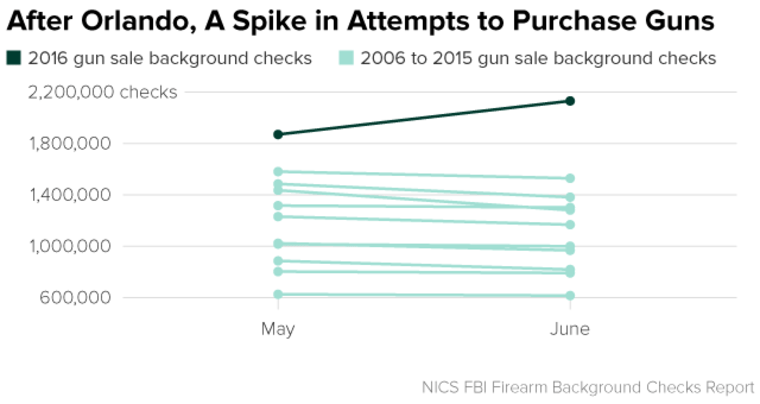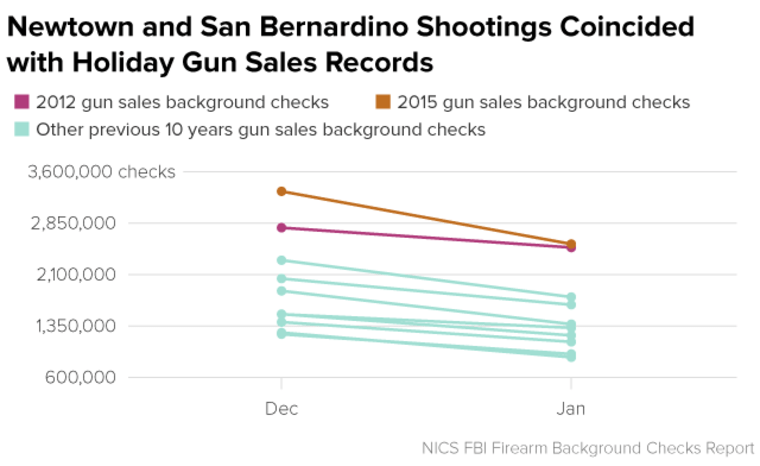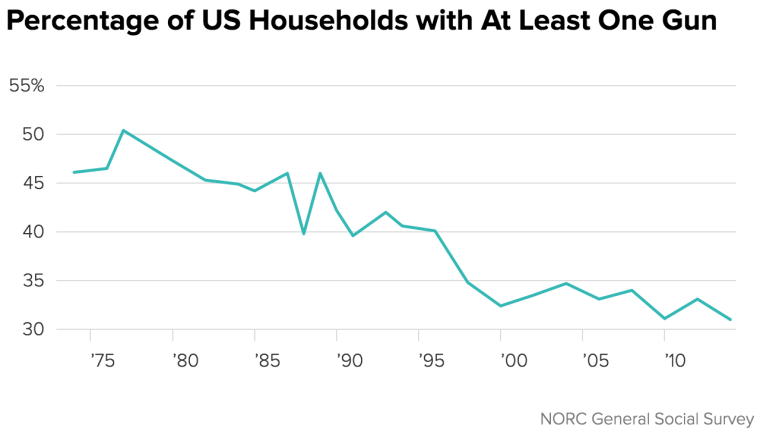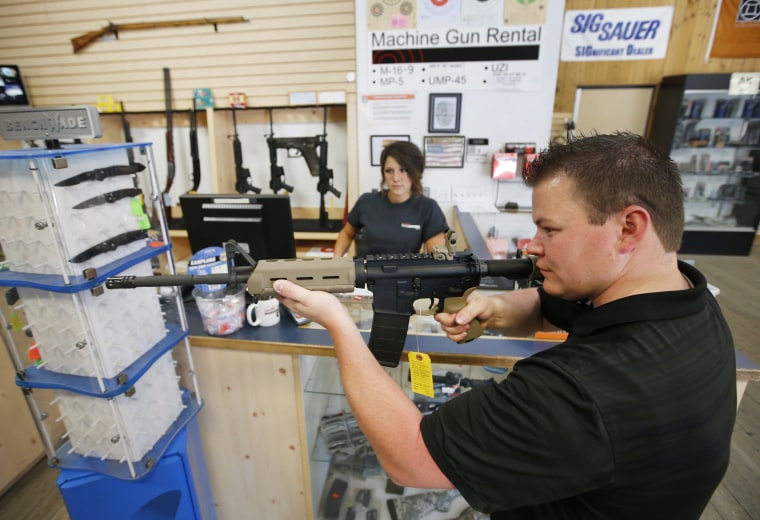It has become a familiar pattern in the United States: After a mass shooting, Americans try to stock up on guns.
Background checks for firearm sales spiked in June, the same month a shooter killed 49 people at an Orlando gay nightclub, according to data released by the FBI late last week. This spike in background checks outpaced all previous years by a substantial margin, as seen in the chart below, which compares background checks in June against the previous 10 years.

This is not a one-time phenomenon. After past mass shootings, similar spikes have been observed. Though background checks are not exactly the same as gun sales, past analyses have found they are a close proxy for sales.
In particular, after the Sandy Hook Elementary shooting and after the San Bernardino and Colorado Springs shootings — which all occurred just before the holidays — gun background checks for sales increased at rates seen at no other comparable points in the history of the data that the FBI collects and releases to the public about firearm background checks. A disproportionately large number of those checks were for long guns, like those used in recent mass shootings. The year after Sandy Hook went on to beat gun sales records by double-digit margins.

While background checks have spiked after mass shootings, the number of U.S. households with at least one gun has been steadily declining. Gun sales more than doubled between 2002 and 2013, even as household ownership flat-lined.
The following chart, which surveys adults through 2014, shows the decades-long decline in gun ownership, which a survey suggested at the time could be linked to a decline in hunting.

